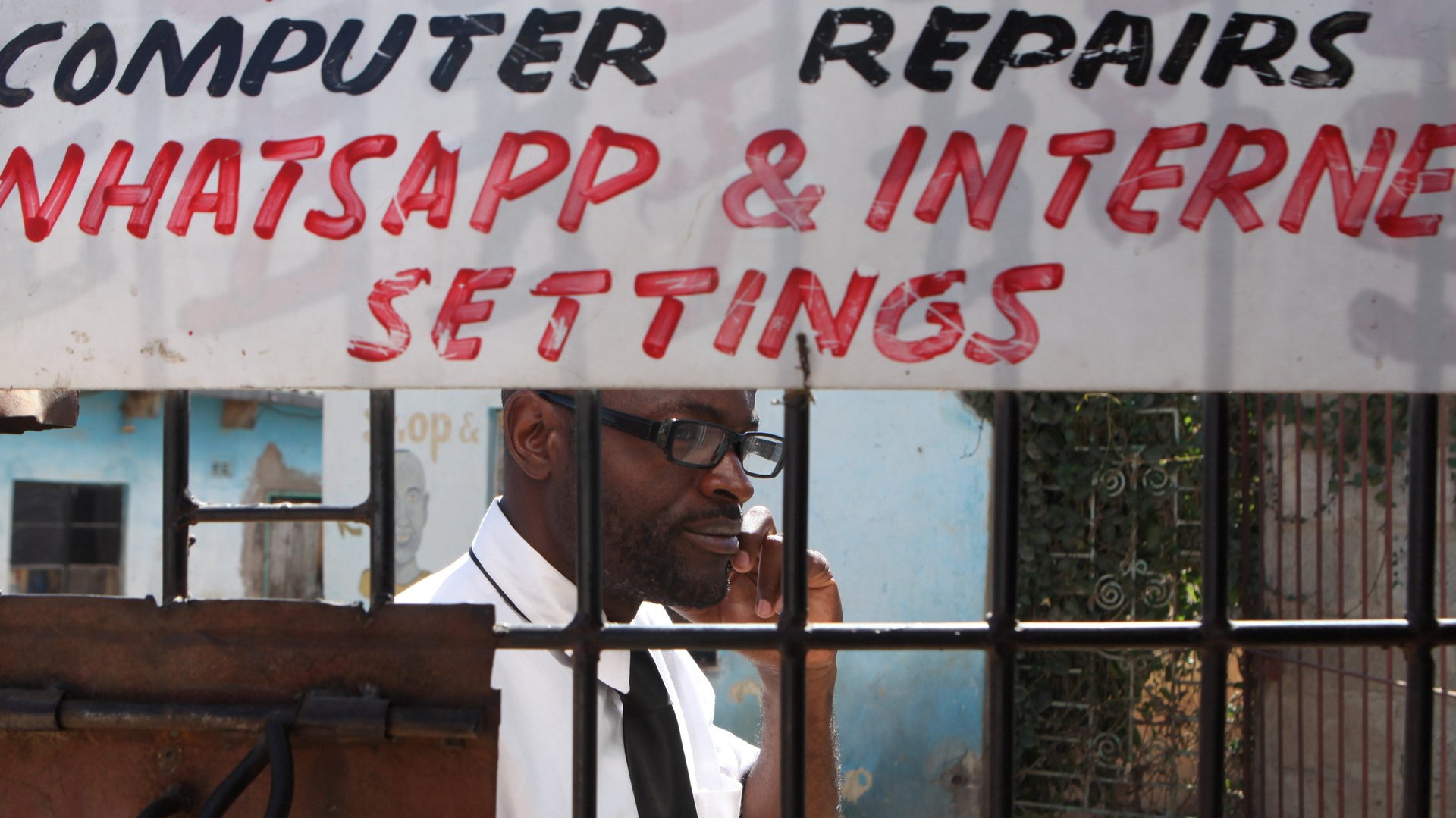Zimbabwe has a new “minister of WhatsApp” whose first job seems to be to stop WhatsApp
Correction: Due to an editing error, an earlier version of this story included a claim Zimbabwe’s government had issued WhatsApp rules. It has not.


Correction: Due to an editing error, an earlier version of this story included a claim Zimbabwe’s government had issued WhatsApp rules. It has not.
Harare, Zimbabwe
This week, Zimbabwe’s president, Robert Mugabe, said a new cybersecurity ministry had been created as a trap to catch “rats” who get up to mischief using cyberspace.
It was the latest fodder for jokes doing the rounds on social media about former Zimbabwe finance minister, Patrick Chinamasa who will now head this new Cyber Security, Threat Detection, and Mitigation ministry. Locals have joked that Chinamasa’s appointment makes him the “minister of WhatsApp and Facebook”. But the appointment also raises more serious concerns over freedom of expression, access to information and a clampdown on social media messaging.
Some of this is not surprising. A week earlier Chinamasa, while still finance minister, criticized social media platforms such as WhatsApp for the inflation spikes that hit Zimbabwe at the end of September. He claimed the false information spread on these platforms is what led to long queues and shortages of some basic foodstuffs in supermarkets as Zimbabweans panicked and investors sounded the alarm on the economy’s condition.
While Mugabe and the government describe the new ministry as “protective” i.e. acting in a defensive role, there are worries it is really aimed at attacking, like controlling social media use locally. This all comes as Zimbabwe finalizes a Computer and Cyber Crimes Bill that has already attracted criticism from human rights and freedom of expression campaign groups.
It’s easy to understand why social media is something of a thorn in the government’s side. The 93-year old president has become a meme on African social media (not just Zimbabwe) for “closing his eyes” during major events, reading the wrong speech and tripping over. But the more sinister, and likely, reason, is that the ZANU PF-controlled government may be concerned about the use of social media to organize opposition to its 37-year rule since independence. Top of the party’s list of concerns will be curtailing the role of social media in next year’s re-election campaigns for Mugabe.
A Mugabe spokesman said the new minister will be able to learn from the experience of other countries including China and Russia, two countries known for their censorship of both local and major social media platforms. The spokesman George Charamba described those countries as having “done well in ensuring some kind of order and lawfulness in that area (Cyber-space),”
Law expert, Alex Magaisa, said this week that “creating a standalone ministry to monitor cyberspace also shows Mugabe’s penchant for expanding instruments of coercion as opposed to protection of fundamental freedoms.”
“People have been making jokes about this ministry but I see serious threat to freedom of expression, access to information and the right to privacy,” said Chris Musodza, an ICT expert based in Harare. “We now have a ministry dedicated to surveillance and monitoring of the cyberspace.”